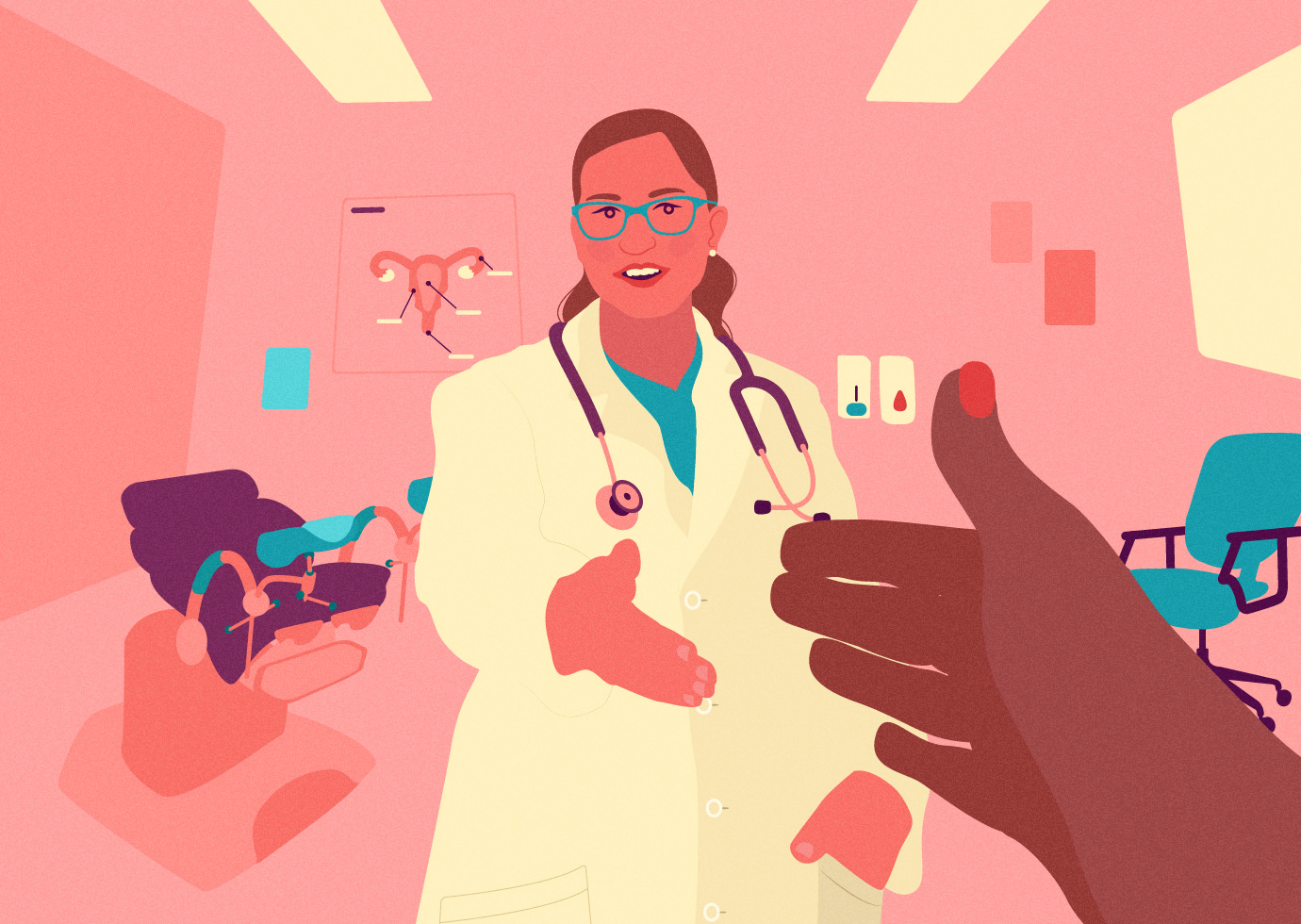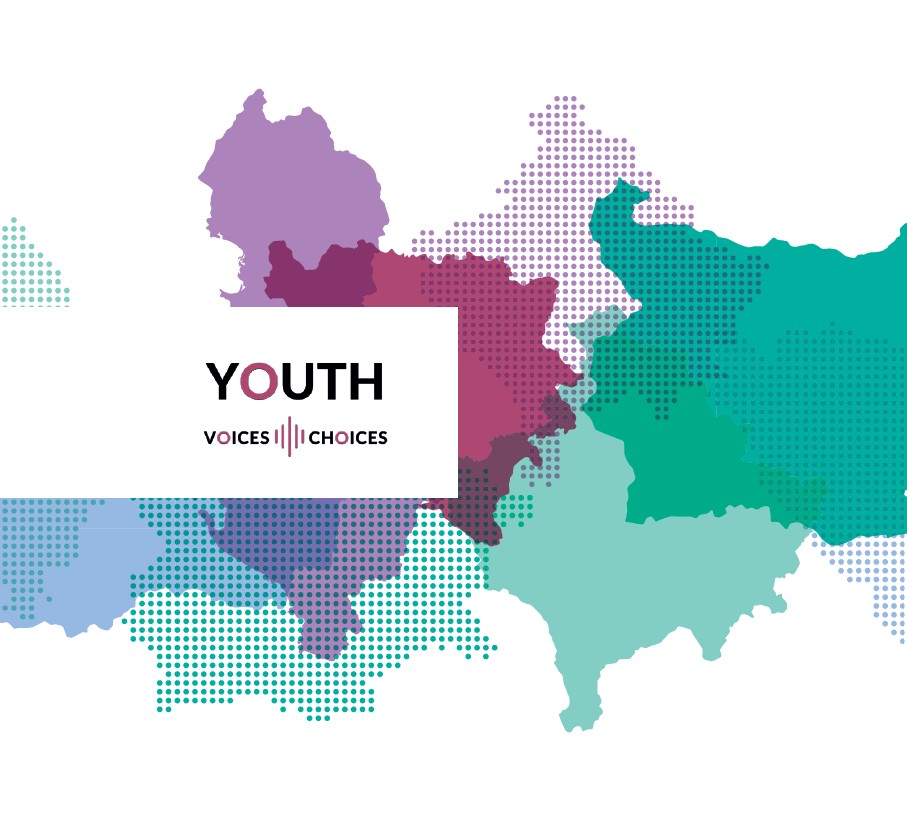Spotlight
A selection of resources from across the Federation

Abortion Care and Costs in Europe and Central Asia
IPPF EN carried out research into the economic burden that women face in accessing abortion care in Europe and Central Asia. This factsheet provides a snapshot of the findings.
Filter our resources by:


| 22 November 2022
Gynaecological and Obstetric Violence - a form of gender-based violence
The widespread and systemic mistreatment and violence against women experienced during childbirth and other reproductive health services has gained international visibility in recent years, following pioneering work in several Latin American countries to recognise and criminalise this form of gender-based violence. International institutions have also spoken out on the issue. In 2014, gynaecological and obstetric violence was acknowledged by the World Health Organisation, and in 2019 the UN Special Rapporteur on Violence against Women described it as a “serious violation of women’s human rights occurring across all geographical and income-level settings”. In Europe, the parliaments of the Council of Europe and of the European Union have very recently adopted resolutions drawing attention to this phenomenon and calling for national and European measures to tackle it. But to date, no national government has put in place legislation specifically to criminalise gynaecological and obstetric violence. This means that currently, people living in EU Member States have few legal protections or means of redress. With this in mind, IPPF EN produced this research and policy paper to provide an outline of the systemic and widespread nature of gynaecological and obstetric violence across many countries in Europe, and make recommendations to European and national decision-makers to tackle this form of gender-based violence. On this page you can download our full research and policy paper, as well as a short summary of the report. Check out IPPF EN's Safe From Harm campaign, highlighting the EU action we support to combat gender-based violence. *** This work was funded by the European Union through the Citizens, Equality, Rights and Values Programme. Disclaimer: Views and opinions expressed are those of IPPF EN and do not necessarily reflect those of the European Union or the European Commission. Neither the European Union or the European Commission can be held responsible for them.

| 29 March 2022
Youth access to SRH information, education and care in the Balkans in COVID times
COVID-19 created the largest health and socio-economic crisis of our generation. Many health systems were pushed to the brink by restrictive measures rushed in to respond to the pandemic, resulting in the deprioritisation of some existing healthcare services. In almost all European countries, COVID-19 had a negative impact on the delivery of vital sexual and reproductive healthcare, including maternal health and family planning, for women and groups that face barriers to accessing care, including young people. The pandemic also uncovered weaknesses within our systems and exposed the fact that countries are not adequately prepared to deal with health emergencies. To help bring about positive change for young people, IPPF European Network is working to strengthen healthcare systems through the project Youth Voices, Youth Choices, and to remove all kinds of barriers preventing youth from accessing essential care in five Balkan countries: Albania; Bosnia & Herzegovina; Bulgaria, Kosovo and North Macedonia. We are focusing particularly on the needs of those living in remote areas, as well as those from communities that face challenging social conditions, such as the Roma. POLICY RECOMMENDATIONS In October 2022, IPPF EN launched a set of regional policy recommendations that call on decision-makers to listen to young people and uphold their SRHR as they build back health and social systems in the wake of the pandemic. Presented at the European Parliament on 26 October by youth advocates and experts, with the support of MEP Fred Matić, the recommendations were developed by a group of specialists who came together to develop a blueprint for designing systems that prioritise access to youth-friendly SRH care, and better support of young people’s health and well-being. The policy recommendations are available for download below. RESEARCH REPORT As a basis for this work, in 2021 and early 2022, we conducted a study to provide us with a clearer picture of the impact of the pandemic on young people’s SRHR. The data was published in a series of reports presenting the findings of the study, carried out by and among youth in five Balkan countries. The reports, available for download below, document young people’s SRH needs and experiences and the perspectives of healthcare providers and other relevant stakeholders on these needs. They also capture the latter’s needs as they deliver services, information and education to young people, building on their experience of COVID-19. YOUTH VOICES Young people are at the heart of this work. They were part of the teams that carried out the research presented in the reports below. They participated in the expert groups that developed our regional recommendations for policy change (below) at national and regional level, and they are being supported and empowered to advocate for these changes. Youth were also in the lead at our 'Healthy Youth – Healthy Future' multi-stakeholder meeting in Tirana in spring 2023, where together with staff from our partner organisations they held discussions with decision-makers and experts from the field, concluding with the signing of a joint declaration on protecting the health and social wellbeing of young people during and beyond moments of crisis - available for download below. Young people also carried out a series of interviews among their peers to share stories of how the pandemic affected their access to SRHR, and what their vision is for a more youth-friendly future that listens to the younger generations and upholds their SRHR.

| 04 February 2022
The new Council of the EU Presidency Trio - an opportunity for SRHR and gender equality
Over the last years, the EU has been facing many challenges in the realization of its core values: the rule of law, democracy, human rights, equality, gender equality and women’s rights. The upcoming years are an opportunity for the EU to reflect on the direction it wants to take, the values it should stand for, and what more it can do to uphold and defend them. The EU should strive towards a world where everyone can enjoy the same rights, and lead free and safe private and family lives, free from sexism, coercion, and violence. In this crossroads moment, the Council of the EU Presidency Trio – France, Czech Republic and Sweden – has a critical role to play to uphold EU values. We call on this Trio to adopt a feminist approach and show stronger leadership to further advance gender equality and women’s rights, including sexual and reproductive health and rights (SRHR), in the EU and beyond. More on our recommendations for the Trio in the factsheet below, available in English and French.

| 02 August 2021
Economic justice goes hand in hand with sexual and reproductive health and rights
The realisation of sexual and reproductive health and rights (SRHR) is a necessary precondition for achieving economic justice. A number of different components together form the basis for economic justice. These components include safe and decent work with equal and fair pay, equal access to resources and opportunities, social protection systems, as well as the right to peaceful assembly. SRHR is often not included in these discussions while it can provide basic solutions to prevailing economic inequality. It is therefore of great importance that SRHR is given priority as an integrated topic in the discussions on economic justice, especially in the light of the growing resistance towards SRHR as well as the ongoing Covid-19 pandemic and its grave implications for achieving gender equality. Read our factsheet.

| 28 April 2020
Reaction to the Gender Equality Strategy 2020-2025 with a focus on sexual and reproductive health and rights
A joint reaction from IPPF EN, the Center for Reproductive Rights, End FGM European Network, with the support of the European Women's Lobby. We welcome the publication of the Gender Equality Strategy 2020-2025 by the European Commission. The adoption of this Strategy shows the political leadership and commitment of the Commission to promote gender equality within and outside the EU, with important objectives and actions for the next 5 years. As civil society organisations (CSOs) committed to advancing gender equality and sexual and reproductive health and rights (SRHR) in the EU and globally, we would like to make suggestions on how the Strategy can effectively promote and support the realisation of SRHR in the EU, as this is a precondition to the achievement of gender equality. This will be particularly essential in the context of the current COVID-19 pandemic, as we are already observing renewed threats to women’s human rights, SRHR and increased risks of gender-based violence. These challenges will require the adoption of targeted and specific responses and actions by the EU and Member States. We stand ready to share information and ideas about these new challenges and how they can be addressed. To read our full reaction, please see the above document.

| 19 July 2019
How can you, as a MEP, promote gender equality and sexual and reproductive health and rights in the EU?
In 2019-2024, we call on Members of the European Parliament (MEPs) to ensure that all Europeans can lead free and safe private and family lives, in a society free from sexism and discrimination. This paper lays down the areas where the EU has internal competences and where MEPs have the power to act. Members of the European Parliament (MEPs) have a critical role in promoting SRHR in EU external action and upholding the right of young women and men around the world to lead safe and dignified lives, free from coercion and harm. These are just some of the steps MEPs can take to champion SRHR.

















